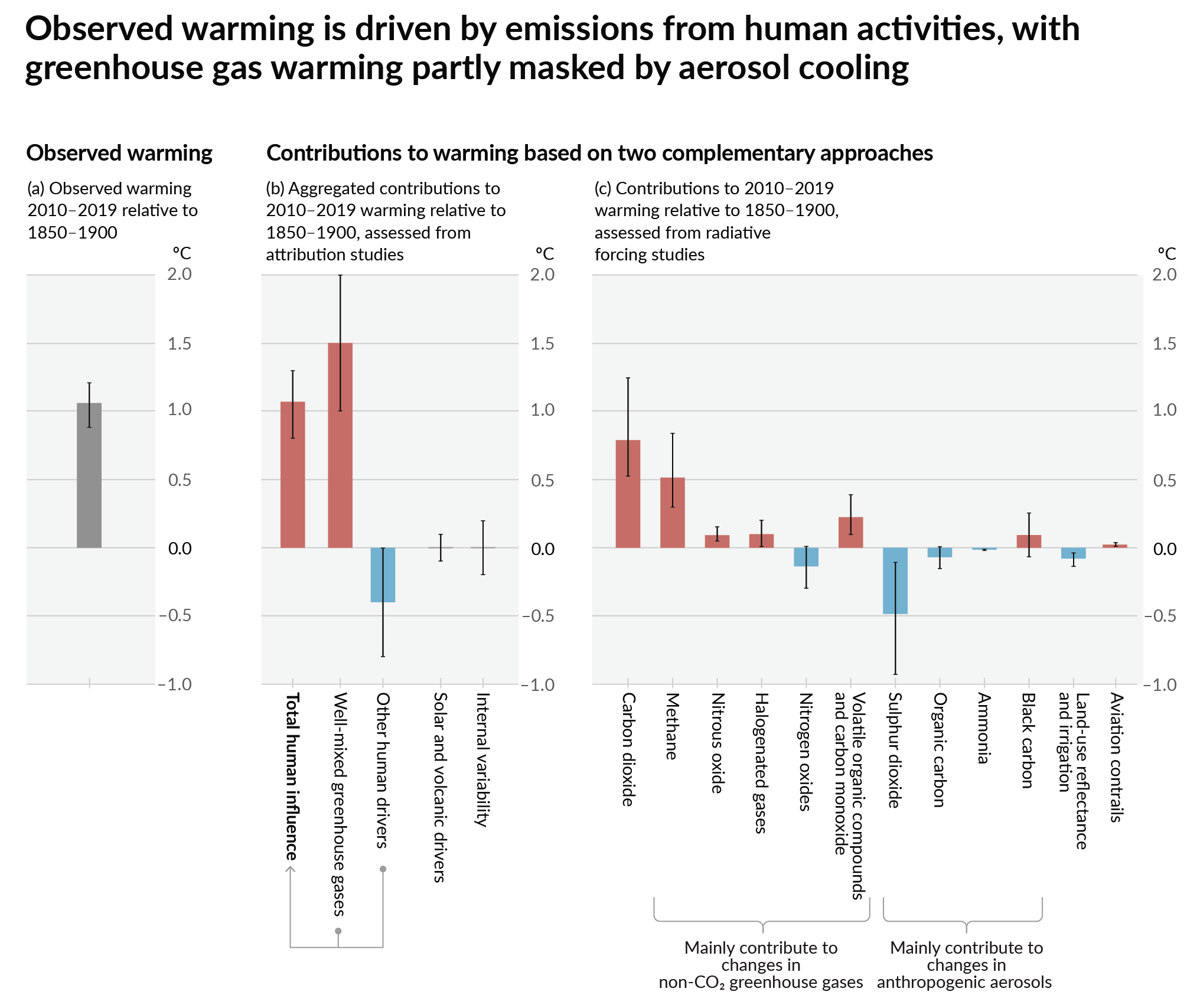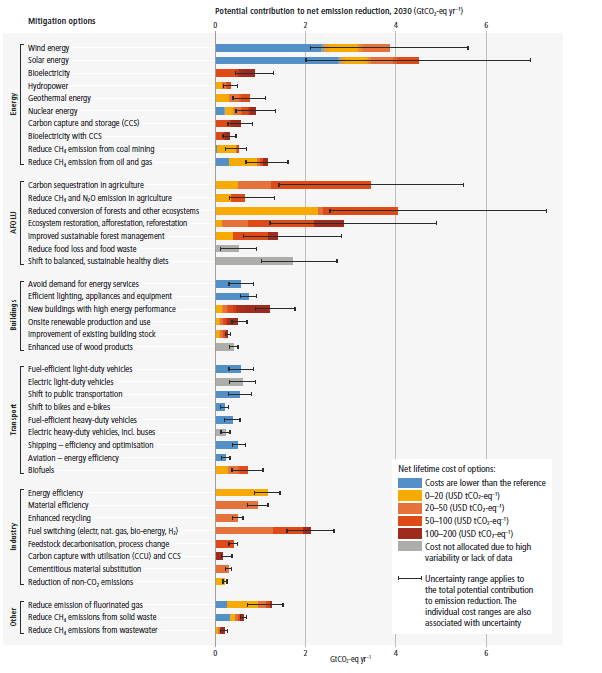How do banks prepare for the possible near end of our world as we know it?
By making short term business opportunities, of course!
I mean, we can all see how sick this world is and that we are the fucking infection
Discussion of climate, how it is changing, activism around that, the politics, and the energy systems change we need in order to stabilize things.
As a starting point, the burning of fossil fuels, and to a lesser extent deforestation and release of methane are responsible for the warming in recent decades:

How much each change to the atmosphere has warmed the world:

Recommended actions to cut greenhouse gas emissions in the near future:

Anti-science, inactivism, and unsupported conspiracy theories are not ok here.
How do banks prepare for the possible near end of our world as we know it?
By making short term business opportunities, of course!
I mean, we can all see how sick this world is and that we are the fucking infection
Never underestimate the capitalist ability to do mental gymnastics to perpetuate the system.
I mean, yes, and yes.
I can even see the logic in it, from an individual perspective. How do you, as an individual, prepare for global climate collapse? By making as much money as possible, so when resources get scarcer and more expensive you can still afford them - and by gathering resources under your control to prepare for a time when those resources become unavailable on the market - whether your money making activity speeds up the climate collapse or not. So how do you, as a business, prepare for global climate collapse? Exactly the same.
It's the tragedy of the commons as a self-fulfilling prophecy.
Making money only makes individualist sense if you assume that there will still be a state apparatus enforcing and maintaining that ownership. All it takes is a communist revolution and your assets are no longer yours. And guess what becomes more likely as climate catastrophe looms?
The businesses themselves do not benefit from climate catastrophe either. But businesses don't decide what they do, the owners of those businesses do. And those owners are ipso facto tied to the current model of ownership.
The business doing well - expanding its holdings, making profit, insuring itself against risks, etc. - is completely secondary to the business behaving in ways that satisfy the business owners.
Tragedies of the commons are patched all the time in business. Enforcing corporate contracts would be a tragedy of the commons, yet businesses all submit themselves to corporate law. Collusion would be a tragedy of the commons, so that is made illegal and corporations are forced to treat all business partners equally. The bank bailouts of 2008 cost most businesses a lot of money through taxation and deferred social services for their employees. And when there was an algorithm glitch and the stock market acted crazy for one day in the 2010s, everybody agreed to just revert before that day.
Because at the end of the day, if climate catastrophe was a tragedy of the commons for them, they would be okay with a liberal environmentalist president. Someone who preserves rich people's privilege even as the economics are reorganized.
But they are not. They treat climate change prevention as the existential threat. They pool trillions of dollars to elect an unreliable egomaniac fascist just so they don't end up with a Democrat.
They don't care about their own wellbeing or even their privilege, they care about playing the game. They want to be rich because they optimized ruthlessly for personal profit.
There was a meme going around at some point to the tune of
I don't get why both teams don't work together in basketball - imagine how many points they could score!
It is not about the points, it's about the game that arises when you only care about points within a specific ruleset. And for capitalists, the ruleset of the game they want to play is not compatible with climate change prevention.
Tldr; the nature of capitalism is juxtaposed to any action to ease the ongoing climate emergency.
See how I cleverly used the word nature in there?
"No problem can be solved by the same level of consciousness that created it."
~ Some wise person who has never been in my kitchen.